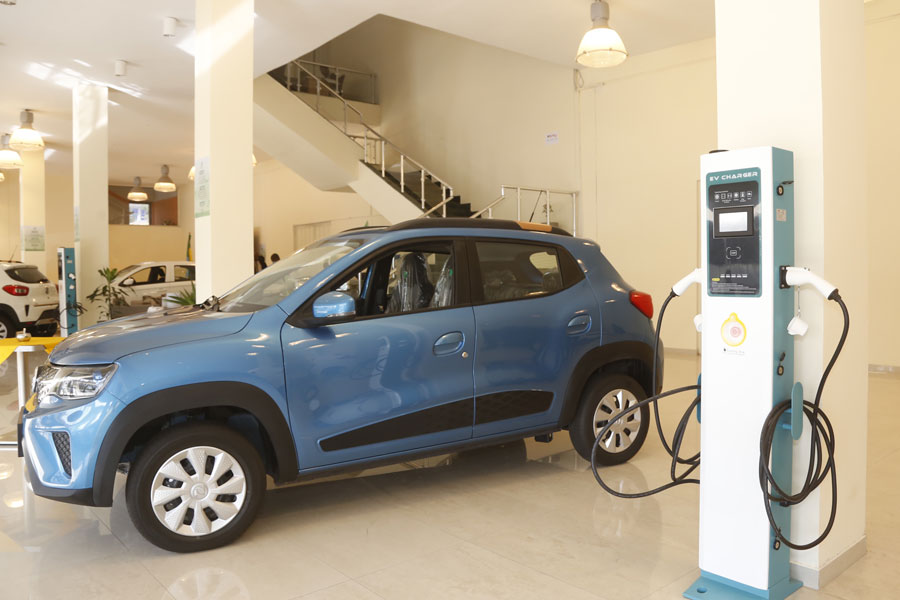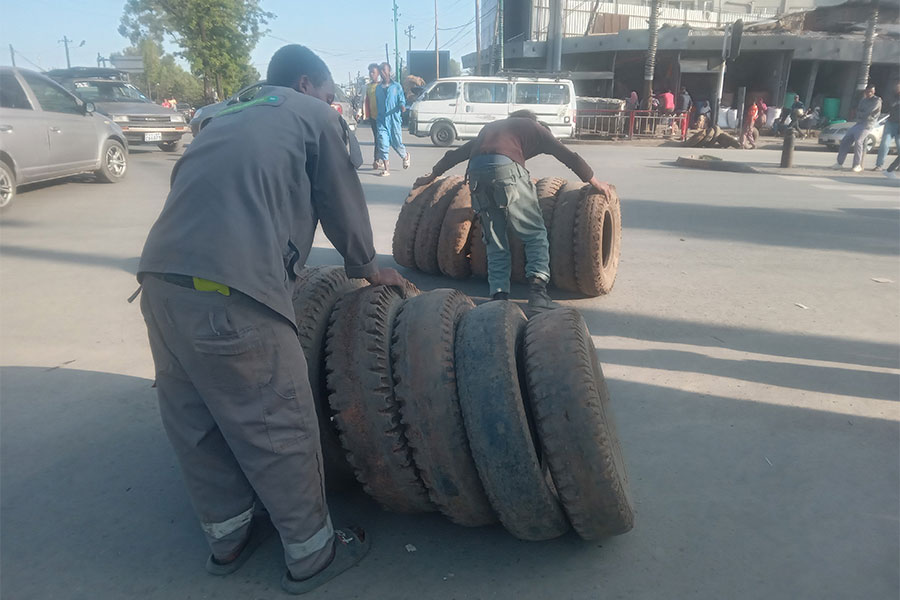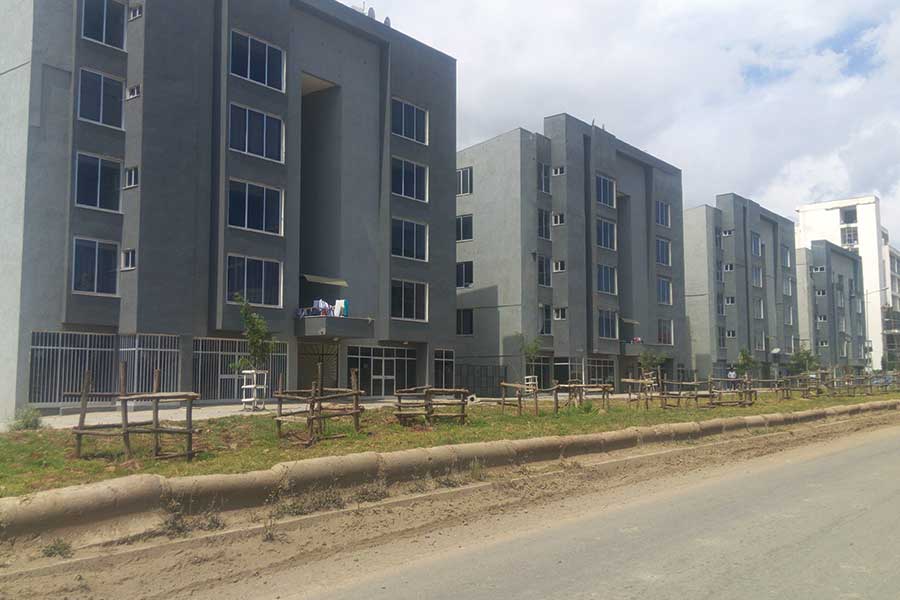
Fortune News | Jul 06,2025
Feb 25 , 2023
By Bjorn Lomborg
One of humanity's most significant achievements in the last century was increasing food production. In the 100 years to 2000, there was a six-fold increase in crop harvests. The global population increased less than four-fold; ordinary people today could have around 50pc more food available than their great, great grandparents.
Most of the increase in production came from farmers growing more food from each hectare of land. The extraordinary progress is due to the Green Revolution that turbo-charged modern inputs for farming.
The Nobel Peace Prize-winning agronomist Norman Borlaug, who spearheaded the intensification of modern farming methods, saved more than one billion lives from hunger. As well as feeding people, the Green Revolution made societies much richer. As agriculture becomes more efficient, people are freed from backbreaking labour and engaged in much broader productive activities.
The Green Revolution was an extraordinary achievement.
However, the world needs a second Green Revolution to extend the benefits to the world's poorest and reduce global hunger. It is especially needed today as we fall behind on feeding the planet.
Since 2016, world leaders have made grand development promises for every country by 2030, called the Sustainable Development Goals (SDGs). One of the most crucial goals focuses on boosting agriculture − from ending hunger to ensuring better nutrition and more sustainable farming.
Unfortunately, we are failing our pledges, not just because Covid derailed progress. A tracker shows that even based on progress before the pandemic's disruption, food promises by politicians would not be met by 2030 but more than 80 years later, in the early 2100s.
Indeed, the entire world will be late on all its major commitments. We are now at the halftime mark for our grand promises, but we are nowhere near halfway. The Copenhagen Consensus has been working with some of the world's best economists to identify the most effective policies for the remaining time. If we cannot do everything, we should focus on the most effective solutions in every area, including agriculture and hunger.
Our researchers examined many agricultural policies, like subsidizing fertilizer and increasing irrigation. These all deliver moderate societal benefits, but the effects are not remarkable for every dollar invested. However, one clear opportunity for humanity is a big increase in investment in agricultural research and development (R&D).
There is still significant underspending on agricultural R&D for poorer countries. Big corporations understandably spend most in rich countries where large-scale farmers have deep pockets. That is why in 2015, 80pc of global agricultural R&D funding went to rich and upper-middle-income countries, while lower-middle-income countries got the remaining. The world's poorest countries, including Ethiopia, got almost nothing.
This unequal investment has been persistent for more than half a century. It is a primary reason why the Green Revolution did not help the poorest as much as wealthier countries. Cereal yields in high-income countries almost tripled from 1961 to 2018, whereas low-income countries saw a much smaller increase of 50pc.
The untapped potential is enormous.
Research published this week by Copenhagen Consensus demonstrates that the world will only need to spend a small amount more each year to generate vast benefits. It estimates the additional cost of R&D this decade is about 5.5 billion dollars annually—a relatively small sum, less even than Americans spend on ice cream every year.
This investment will generate better seeds and high-yield crops that can also better handle weather changes like those we will see from climate change. Creating bigger and more resilient harvests will benefit farmers, and producing more food will help consumers with lower prices. The total net benefit over the next 35 years for farmers and consumers will exceed two trillion dollars. Every dollar spent delivers an astounding 33 dollars in social benefits, making this a spectacular investment.
By 2050, this additional funding will boost agricultural output by 10pc, reduce food prices by 16pc, and increase per capita incomes by four percent. The investment will increase GDP in developing countries by 2.2 trillion dollars by 2030 and 11.9 trillion dollars by 2050, a two percent and six percent increase in per capita incomes, respectively.
And more efficient agriculture will reduce global climate emissions by more than one percent.
Agricultural R&D is a phenomenal investment because not only do we make agrarian workers more productive, but we enable more people to be productive and innovative in other sectors, too. It leads to fewer people being hungry and lowers food costs for everyone.
We cannot deliver on all our promises for 2030. But we should deliver on agricultural research and development for the poorest half of the planet because it is one of humanity's best investments.
PUBLISHED ON
Feb 25,2023 [ VOL
23 , NO
1191]


Fortune News | Jul 06,2025

View From Arada | May 11,2024

Agenda | Mar 30,2024

Editorial | Feb 18,2023

Sunday with Eden | Apr 03,2021

Commentaries | Aug 13,2022

Covid-19 | May 09,2020

In-Picture | Nov 02,2025

Fortune News | Dec 27,2018

Fortune News | Nov 30,2019

Photo Gallery | 180665 Views | May 06,2019

Photo Gallery | 170859 Views | Apr 26,2019

Photo Gallery | 161943 Views | Oct 06,2021

My Opinion | 137303 Views | Aug 14,2021

Dec 22 , 2024 . By TIZITA SHEWAFERAW
Charged with transforming colossal state-owned enterprises into modern and competitiv...

Aug 18 , 2024 . By AKSAH ITALO
Although predictable Yonas Zerihun's job in the ride-hailing service is not immune to...

Jul 28 , 2024 . By TIZITA SHEWAFERAW
Unhabitual, perhaps too many, Samuel Gebreyohannes, 38, used to occasionally enjoy a couple of beers at breakfast. However, he recently swit...

Jul 13 , 2024 . By AKSAH ITALO
Investors who rely on tractors, trucks, and field vehicles for commuting, transporting commodities, and f...

Nov 1 , 2025
The National Bank of Ethiopia (NBE) issued a statement two weeks ago that appeared to...

Oct 25 , 2025
The regulatory machinery is on overdrive. In only two years, no fewer than 35 new pro...

Oct 18 , 2025
The political establishment, notably the ruling party and its top brass, has become p...

Oct 11 , 2025
Ladislas Farago, a roving Associated Press (AP) correspondent, arrived in Ethiopia in...

Nov 2 , 2025
The National Bank of Ethiopia (NBE) has scrapped the credit-growth ceiling that had s...

Nov 2 , 2025 . By SURAFEL MULUGETA
The burgeoning data mining industry is struggling with mounting concerns following th...

Nov 2 , 2025 . By YITBAREK GETACHEW
Berhan Bank has chosen a different route in its pursuit of a new headquarters, opting for a transitional building instea...

Nov 2 , 2025 . By BEZAWIT HULUAGER
Nib International Bank S.C. has found itself at the epicentre of a severe governance...